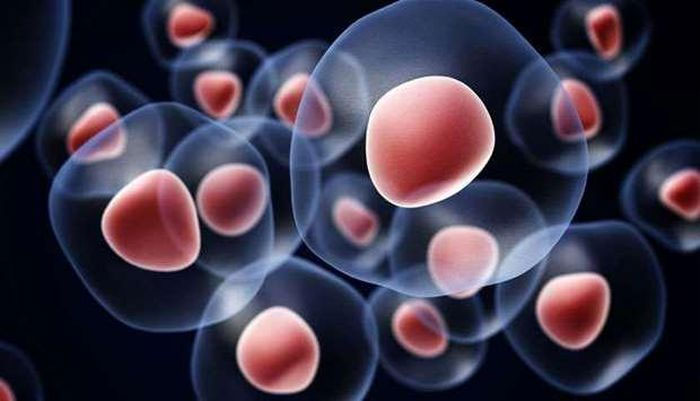Chinese scientists have successfully reprogrammed human somatic cells back into pluripotent stem cells using chemical molecules.
A research team led by scientist Dang Hong Khue from Peking University announced the first discovery of a chemical cell reprogramming technique.

Stem cells. Illustration: AFP
Previously, intrinsic components of cells, including the cytoplasm of oocytes and transcription factors, were utilized to reprogram cells in human tissues or organs into pluripotent stem cells capable of differentiating into any type of cell in the body.
Inspired by the way lower animal species, such as axolotls, regenerate their limbs, researchers demonstrated that highly differentiated human somatic cells could undergo plastic changes influenced by certain chemical molecules. They successfully identified a group of chemicals that led to the reverse differentiation of these cells, ultimately creating pluripotent stem cells that exhibit key characteristics of embryonic stem cells.
Dang Hong Khue, a co-author of the study, stated that the chemical reprogramming method is “safer, simpler, and easier to standardize and apply clinically” compared to previously known methods.
The researchers indicated that this technique could be scaled up to effectively culture human cells with various functions, opening new hopes for treating severe diseases.


















































